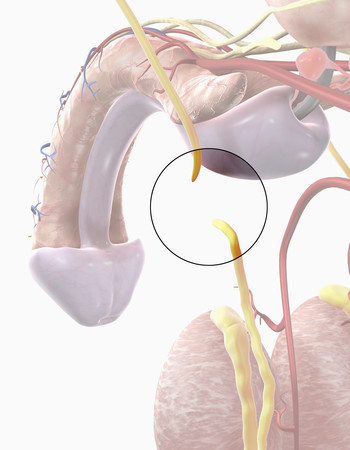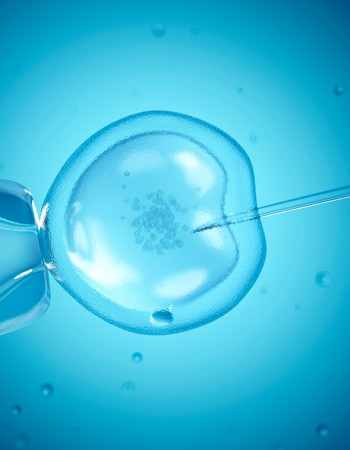




Today's Medicine
Vasectomy regret: pregnancy options after the procedure
Published: Aug. 14, 2024

Approximately 500,000 men undergo vasectomies every year in the United States. And at some point, a significant number of them change their minds and want another child.
Regret often occurs with a change in marital status – such as divorce or remarriage – but that’s not always the case. Over time, some couples simply have a change of heart. If you’re struggling with regret, you have options.
Pregnancy after vasectomy
There are two ways pregnancy can be achieved after a vasectomy. They are:
- Vasectomy reversal: The severed ends of the vas deferens are reconnected.
- In vitro fertilization (IVF) with testicular/epididymal biopsy: Sperm is removed and used to fertilize the woman’s eggs.
There are pros and cons to both procedures, but before considering what’s best for you and your significant other, it’s a good idea for your female partner to be evaluated.
The ideal female partner is under 35 with regular menstrual cycles. A reproductive endocrinologist can perform her evaluation, ensuring there are no fertility obstacles on her end. You certainly wouldn’t want to undergo a vasectomy reversal only to learn that IVF is necessary because of an underlying issue with your partner.
If everything appears normal following the female evaluation, you’ll need to consider what’s best from your perspective.
Vasectomy reversal
 During a vasectomy, the vas deferens – the tube that transports sperm from the testicle – is severed. A vasectomy reversal reconnects that pathway, with the goal of allowing sperm to be present in the semen once again.
During a vasectomy, the vas deferens – the tube that transports sperm from the testicle – is severed. A vasectomy reversal reconnects that pathway, with the goal of allowing sperm to be present in the semen once again.
One of the biggest determinants of a successful reversal and pregnancy is the amount of time that’s passed since the vasectomy. Here’s a breakdown of success rates:
For patients who underwent a vasectomy less than three years ago, the patency rate – or chance of sperm being able to freely flow through the vas deferens again – is 97%. The pregnancy rate is 76% over a nine-year period.
If it’s been more than 15 years since the vasectomy, the patency rate drops to 71%, and the pregnancy rate to 30%.
Other considerations include cost (approximately $6,800-$8,700 in the Omaha area) and the risks of chronic pain, bleeding and infection.
In vitro fertilization
 The other option you have after a vasectomy is IVF.
The other option you have after a vasectomy is IVF.
During IVF, your significant other undergoes controlled ovarian stimulation to grow multiple eggs, which will be retrieved once mature. On the day of egg retrieval, a urologist performs your sperm retrieval. This is generally done in the office under local anesthesia. Although there can be soreness once the anesthesia wears off, these procedures are generally well-tolerated.
In some cases, your sperm may be harvested prior to the day of egg retrieval and frozen for later use. This isn’t preferred, as fertilization rates are better with a fresh sample.
IVF carries up to a 65% pregnancy rate/cycle, and couples have the opportunity to have their embryos genetically screened. This increases the chance of pregnancy, while decreasing the chance of miscarriage and genetic birth defects.
An IVF cycle with sperm retrieval will likely cost $17,000-$18,000 and possibly more if genetic screening is desired.
Navigating emotions after vasectomy
Some men experience a host of emotions after getting a vasectomy. This doesn’t necessarily signal vasectomy regret, and pregnancy may not be the answer to uneasy feelings. The decision to start a family or have more children must be made after careful consideration and with a mutual desire between you and your partner. But you two are not alone.
Don’t hesitate to reach out to your Methodist primary care provider or reproductive endocrinologist to bring some clarity to the equation. We’re here to give you an unbiased overview of your health and wellness, helping you make the right decision.

